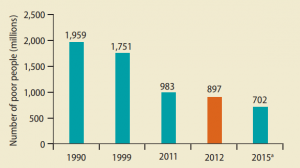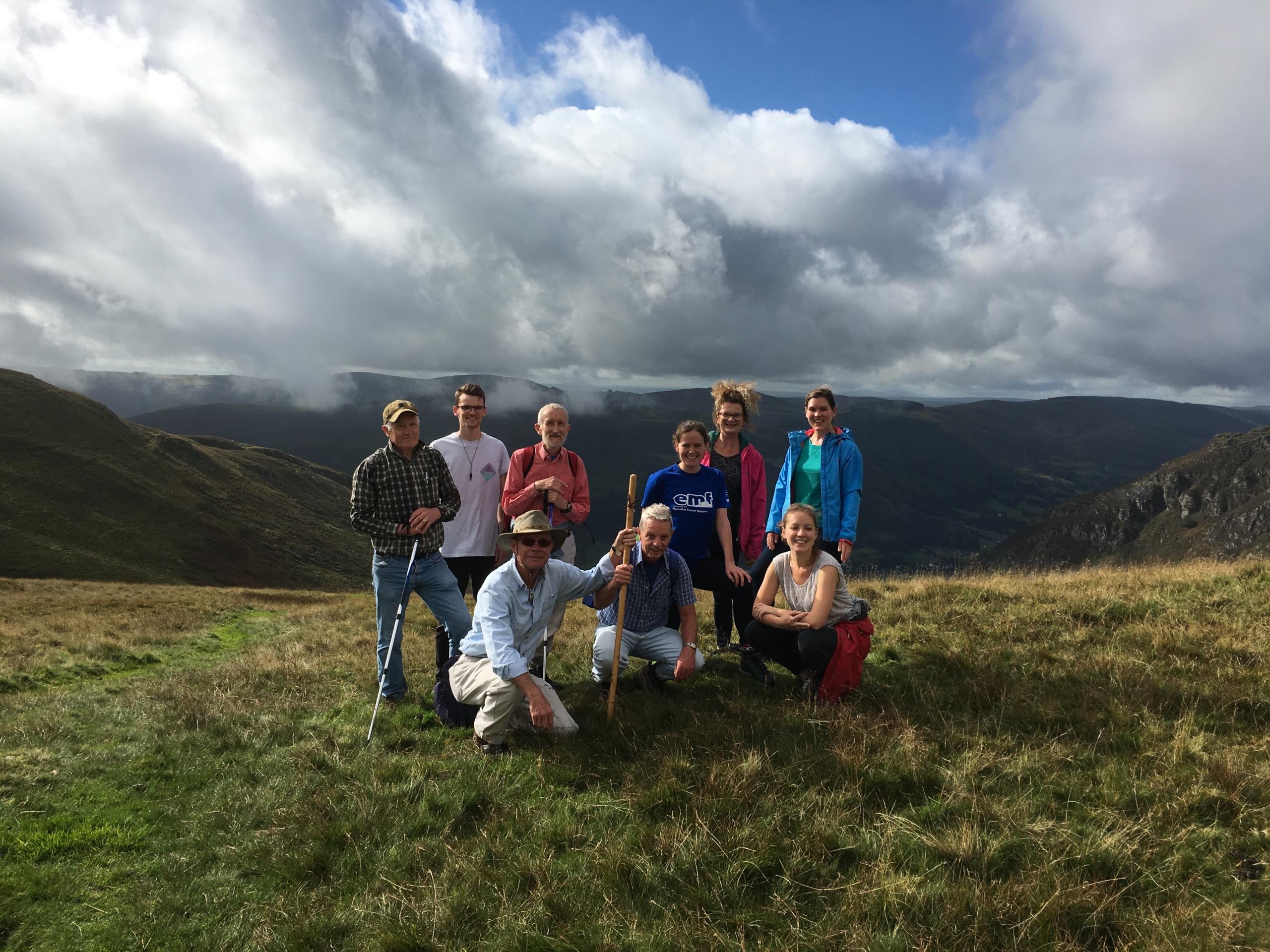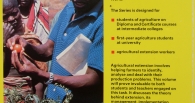50 Years of Trying
A Perspective on International Development, Stats, Facts and Tittle Tattle
Ray Purcell
29 August 2018
/
- 0 Comments
This piece is a personal take, based on a presentation prompted by my local Rotary Club on the Welsh borders. They pursued me for a decade to speak about working internationally. Since 2017 was the 50th anniversary of taking up my first job, I thought I’d take a quick look at how things have gone. I subsequently gave the same presentation at a Mokoro Quarterly Meeting with the addition of an Avicii video and an instruction for no barracking!
My origins are Shropshire Welsh. I studied business in Liverpool, had a post grad year of international studies in the SAIS Bologna Centre and did post-grad agricultural economics at Leeds. I have always worked internationally, lived in Tanzania (3 years as a civil servant), Sweden (2 years for Sida), Italy as a post grad, Botswana (7 years as a civil servant), and post-Soviet Georgia (4 years) and Romania (1 year). I have worked as consultant since 1983, always being strongly affiliated with Mokoro.
My professional beginnings go back to Africa in 1967 when I was catapulted by VSO and a VC10 into the Ministry of Agriculture in Tanzania, was given a civil servant’s contract, a bungalow in Kinondoni, a motorbike to ride and a dog to love me. I was a small boy in shorts and not much has changed. This brief on the 50 years that followed has no academic rigour, but just draws some hi and lo-lites from all those years.
50 years in international development mostly spent in Sub-Saharan Africa (SSA) is a big canvas to make sense of in a couple of thousand words. The modern narrative of SSA is often presented through a lens of post-colonial negativity around tribalism, patronage, nepotism, war and corruption. By serendipity, I have been fortunate to have avoided living in countries severely affected by these. But even those who might be inclined to be sympathetic – see M. Meredith 2006 (The State of Africa) and P. Kenyon 2018 (Dictator Land) – have contributed to the horror story line for SSA where most of us older Mokorons were brought up professionally.

World Income Poverty Numbers as a Proxy for Development. Source: Global Monitoring Report 2015/16, World Bank
To counteract post-Brexit attacks on aid by the press, I would give Rotarians an impression of professionalism by starting with a few big picture stats and then weaving in some country cases and tales for texture. (Actually, they turned out to be a kindly and interested bunch, some of whom had worked in international development themselves). I took poverty reduction as what has become the central metric of development efforts and used the World Bank Global Monitoring Report to see what has happened.
The good news is that absolute global poverty, measured in terms of income poverty, was reported to be down from 2 billion people in 1990 to 700 million in 2015.
To simplify muchly, income poverty itself is broadly a function of the condition and dynamics of the economy either in generating livelihoods or by providing social protection. Economic growth is a highly complex function of a host of variables where attribution gets tricky. To be in poverty is currently defined by the World Bank as having income less than $1.90 per day. Aren’t we the lucky ones?

World Income Poverty Rates (left) World Income Poverty – Regional Breakdown (right). Source: Global Monitoring Report 2015/16, World Bank
While global income poverty rates are down from 37% to 10%, the bad news for SSA is that the bulk of this is due to China. Poverty reduction in SSA was only from around 55% to 45% over the 25-year period. And frustratingly, “Sub-Saharan Africa is home to most of the deeply poor”. Currently amongst the poorest countries in SSA are DRC, Zimbabwe, Burundi, Afghanistan, Liberia, Niger and Eritrea.
On the global non-income poverty front (UN MDG Report):
- Global gender disparities in primary, secondary and tertiary education have been eliminated.
- Primary school enrolment in developing regions is up from 83% in 2000 to 91% in 2015.
- SSA achieved a 20 percentage point increase in enrolments from 2000 to 2015, compared with an 8% gain 1990 – 2000.
- Global under-five mortality declined by more than half between 1990 and 2015.
- Since 1990, maternal mortality has declined by 45% worldwide, with most of the reduction since 2000.
These aggregated figures mask lots of variation. While it is great to see children in African countries going off to primary school as a result at least in part of major aid efforts such as FTI (the Education for All Fast Track Initiative), we know that this has been often achieved at a calamitous dip in quality.
Some Perspective Facts from Countries where I have lived or know well.
Tanzania 1967-70
Early post-independence policy making in former British colonies in SSA was led by Kwame Nkrumah and Julius Nyerere, the first presidents of Ghana and Tanzania respectively. Their counterpart influencers in francophone SSA were Leopold Senghor of Senegal and Sekou Touray in Guinea.
Julius Nyerere (Mwalimu – the Teacher) was inspired by the policies initiated by Nkrumah and the post-Independence enthusiasm for African Socialism (Ujamaa in Tanzania). Both leaders were visionaries and in Nyerere’s case, a nationally unifying leader. His achievement was using a language as a tool to create a united nation out of 120 tribes, something mostly absent elsewhere on the continent. However, his economic policies, initially viewed sympathetically by international financial institutions and western academics and built on state-controlled and nationalised Industrialisation, plus benign but forced resettlement of the rural population, were ultimately destructive. A well-publicised feature was the suppression of the Asian trading community throughout East Africa, culminating in the infamous forced exodus from Amin’s Uganda. The policies led to Tanzania’s economic stagnation through the 1970s and 1980s. After 1990, gradual improvements in economic management (macro, exchange rate, fiscal, private sector) have seen an economic revival from a low base resulting in 6.5% annual growth in the last decade. Politically, de facto one party rule continues today and the current strong-man presidential regime looks regressive.
Botswana 1976 >
Botswana, wherein lies the origin of Mokoro, was a British protectorate (Bechuanaland) and one of the poorest countries in the world at independence (1966). Its immediate post-colonial legacy, as generally in colonial territories, wasn’t great. At independence, Botswana had 15 graduates and barely a strip of tarmac. Post-independence saw the discovery of diamonds which proved the bedrock of its future prosperity. Diamond exploitation was based on a well-negotiated commercial partnership with De Beers. While diamonds were the raw material, their judicious management distinguished Botswana from other SSA natural resource and mineral rich countries. I remember sitting in a meeting with a World Bank research team looking at the public finance management regimes in Zambia and Botswana. Where the average tenure of a permanent secretary in Zambia was six months, in Botswana it was six years or more.
Botswana owes much to the statesmanship of Sir Seretse Khama, its first President, and his successors. He became the role model for a series of well-trained and competent presidents, including his son, Ian. Married to Ruth Williams, whom he met when he was in England, both were banned for this from Botswana and their own communities for a period pre-independence. Seretse’s achievement was to enable an open society and an open and well-managed economy. The socialistic ideals of those such as Patrick Van Rensburg, a South African-born anti-apartheid activist and educator who founded the Brigades movement, were made as welcome as the World Bank. Prudent macroeconomic management controlled the budget deficit, and combined with a market economy, resulted in a well-paid civil service and minimal corruption. Politically, Botswana is considered in the West as a model of good governance for Africa (free and fair elections, independent judiciary, free press etc.) but ironically it has continued de facto as a one-party ruled state at the national level though major urban conurbations including the capital, Gaborone, are governed by the opposition.
In 2009, I was fortunate to link up with Charlie Harvey and Jay Salkin to work on the 10th National Development Plan, all of us having been involved in some of the earliest plans.
Botswana 2018 update
Stability, continuity and competence are Botswana’s political hallmarks exemplified by the recent election of the 5th President, Mokgweetsi Masisi. Economically, for the first time after four decades, mining was no longer the largest sector of the economy in the first quarter of 2018, a result of mining contraction but also a sign of the gradual economic diversification of the economy. However, the story has not been perfect. Observations from our 2010 NDP exercise saw some public finance laxity. And a snapshot from the 2018 first quarter economic review (Econsult) reveals the highest recorded level of bank arrears for parastatals, with “recent developments with the national Petroleum Fund having shown how such funds are subject to abuse and corruption”.
The latest NDP vision is to focus on building an open economy and to attack youth unemployment. Independent analysts see needed economic policy reforms as liberalising work visas to facilitate needed skills, reducing and making more transparent off-budget funds, and reducing trade licensing and reserved economic activity.
Rwanda 2002 >
Rwanda is a sombre but fascinating country. I have been fortunate to work at the brain of government at the Ministry of Finance and Development planning, having helped with the drafting of the last two national development plans.
Rwanda was amongst the poorest countries even before the tragedy of the 1994 genocide. Post-genocide has seen the country led by a strong-man president, Paul Kagame, an erstwhile head of Museveni’s military intelligence in Uganda.
Rwanda has undergone remarkable and sustained economic progress with growth of 6-8% in the last ten years, supported by high levels of well-managed aid. It has taken advantage of aid for spending on education and health, with real gains made in key indicators.
Post-genocide, economic progress has been built on a combination of a market economy, good macroeconomic and public finance management, military-style governance and minimal corruption. Its style of governance is closer to the Chinese than western ideals. A key feature is the strong role played by the ruling party in society (10-house cell units) and the economy (party companies). Suppression of opposition and dissidence is alleged by human rights groups. Much interesting stuff could be said about these, and parallels with Ethiopia and Cambodia come to mind.
Notably and progressively, Rwanda tops the UN list of countries with most women in parliament. Along with Bangladesh and Kenya, it has banned plastic bags.
Georgia
I have spent a lot of time in recent years in Cambodia which would be a nice Asian contrast. But due to lack of space, I’ll speak only of Georgia, another country close to my heart.
I first went to Georgia in 1994, having done some work in Poland and Romania. The break-up of the Soviet Union up was particularly damaging for smaller economies dependent on an administered production and trading system which linked industrial production across countries, akin to the global value chains of today. The break-up led to small economies (Georgia, Armenia, Kyrgyzstan and Tajikistan) contracting by 25% and a collapse in economic activity, with traumatic impacts particularly on the male population, chunks of which became largely dysfunctional. It was the mothers of families who seemed to hold society together.
Georgia is a country similar in size, population and topography to Wales but blessed with fertile sub-tropical as well as temperate agro-ecologies. Georgia produced Joseph Stalin who built the Soviet system, and Eduard Shevardnadze, who together with Mikhail Gorbachev (through glasnost and perestroika) helped deconstruct it.
Shevardnadze, the second post break-up president, was a brave politician but not a creator of a new market economy from the ashes of the old Soviet one. But then who was? The multilateral and unilateral donors struggled with visions and master plans which bit the dust in an environment of chaos and gross instability. The post-Soviet legacy for more than ten years was confusion, dysfunction and corruption. The 2003 Rose Revolution led by Mikheil Saakashvili successfully introduced political and economic reforms including a dramatic example of corruption reduction. Ultimately, Saakashvili himself succumbed at the ballot box, seemingly experiencing a degree of megalomania.
His political legacy was effective multiparty elections and a peaceful change of government which has maintained a strong western orientation based on young generation aspirations of joining the EU.
The corruption stories in development? When these constantly crop up in discussion of developing countries especially in Africa, I point to the behaviour of western companies (e.g. Siemens, Airbus, Rolls Royce). At one time It was happening in the aid sector with the World Bank forced to introduce a black list. I can remember colleagues telling me in Georgia that we had to follow local realities rather than promote good practice.
A Summing Up
- The situation at independence for many SSA countries was severely inadequate in terms of domestic education and governance experience.
- For 30 years, things felt hopelessly static with little or no progress economically or governance wise.
- The post-Millennium decade saw buds of hope with 6 of the 10 fastest growing economies in the world in Africa (Angola, Ethiopia, Rwanda, Mozambique, Equatorial Guinea, Ghana). But since then the trend has somewhat dissipated.
- Growth factors included a global commodity boom, better economic management, growing middle classes and urban economies.
- Constraints – poor infrastructure, weak market integration, mis-governance and corruption.
- The few successful governance models seem closer to China than the West.
- But western democracies have taken hundreds of years to develop so in SSA we should expect a gradual maturation and learning.
- And mature democracies can be foolish.
Professionally and socially, I am grateful to Mokoro for keeping me on my toes and on its books; but also for the human kindness that that I have received from hundreds of colleagues in over 40 countries in the past five decades. And I hope I can keep (being) trying for a while yet!
You must be logged in to post a comment.


